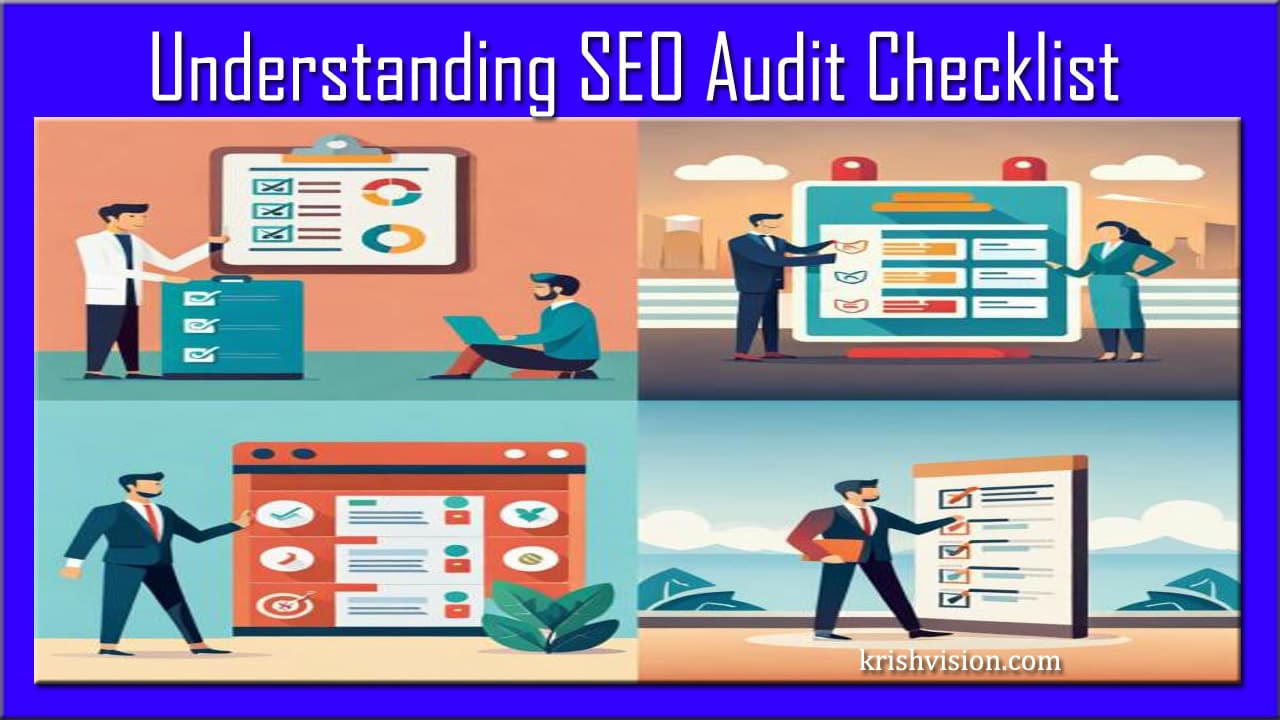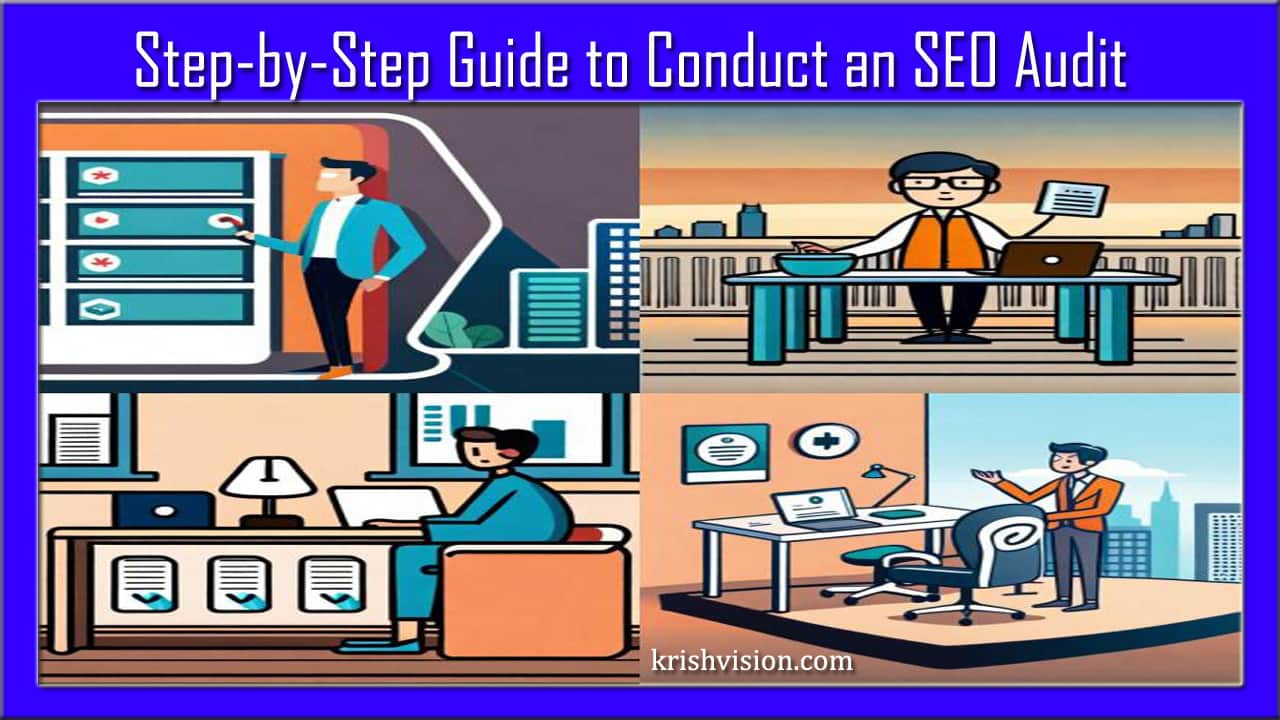
In today’s digital landscape, having a strong online presence is crucial for businesses of all sizes. Search engine optimization (SEO) plays a vital role in ensuring that your website ranks high in search engine results pages (SERPs), driving organic traffic and increasing visibility. To achieve this, an SEO Audit Checklist is essential. This article “Skyrocket Your Website’s Success with an Effective SEO Audit Checklist” will guide you through the process, helping you identify areas of improvement and implement effective strategies to boost your website’s performance.
Understanding SEO Audit Checklist

Before delving into the details, it’s important to have a clear understanding of what an SEO audit checklist entails. Simply put, it is a systematic evaluation of your website’s SEO factors to identify strengths, weaknesses, and opportunities for improvement. It serves as a roadmap to optimize your website, enhancing its performance, visibility, and conversion rates.
Read More! Social Media Marketing for Startups
Importance of SEO Audit Checklist

Implementing an SEO audit checklist is vital for several reasons. Firstly, it empowers you to uncover underlying issues that may be preventing your website from achieving its maximum potential. It provides valuable insights into areas that need improvement and helps you develop a tailored strategy to address them. Additionally, a thorough audit ensures that your website is optimized in compliance with search engine algorithms, leading to higher rankings and increased organic traffic.
Read More! Effective Content Marketing Strategies
Key Elements of an Effective SEO Audit Checklist

A well-crafted SEO audit checklist comprises several key elements that should be thoroughly examined and analyzed. These elements include:
Read More! Digital marketing tips and tricks
Keywords Analysis
Identifying and analyzing relevant keywords is fundamental to any SEO strategy. Proper keyword research allows you to discover valuable phrases that attract your target audience. Look for opportunities to optimize existing page content or create new content that incorporates high-performing keywords.
On-Page Optimization
On-page optimization focuses on optimizing individual web pages to improve their search rankings and user experience. Auditing this aspect entails evaluating elements such as meta tags, headings, URL structure, image alt tags, and internal linking. Make sure these components are properly optimized, relevant, and keyword-rich.
Technical SEO
Technical SEO ensures that your website’s technical aspects are optimized for search engines. This includes examining factors like website speed, mobile-friendliness, crawlability, and XML sitemaps. Addressing technical issues is vital to enhance user experience, as well as search engine crawling and indexing.
Backlink Analysis
Evaluating your website’s backlink profile is critical for SEO success. Conducting a thorough backlink analysis helps identify both quality and toxic backlinks. Creating a strong and diverse backlink profile improves your website’s authority, credibility, and search rankings.
Content Audit
Content is king, and performing a content audit is crucial in determining its quality and relevancy. Evaluate your existing content to ensure it is engaging, informative, and well-structured. Identify opportunities to optimize underperforming content or create fresh, keyword-rich content to attract and engage your target audience.
Read More! Website Optimization Techniques
Step-by-Step Guide to Conduct an SEO Audit

Now that you have a clear understanding of the key elements, let’s explore how to conduct an SEO audit step by step.
- Define Goals: Clearly define your objectives and what you hope to achieve through the audit.
- Crawl Your Website: Utilize crawling tools to analyze your website’s structure, identify broken links, and evaluate indexation
- Analyze Keywords and Competitors: Perform in-depth keyword research to identify relevant terms and analyze competitor strategies
- Evaluate On-Page Optimization: Thoroughly examine and optimize meta tags, headings, URL structure, and internal linking
- Audit Technical Aspects: Assess your website’s speed, mobile-friendliness, crawlability, and XML sitemaps.
- Assess Backlink Profile: Analyze your website’s backlink profile, ensuring quality links and removing toxic or spammy ones.
- Perform Content Audit: Evaluate the quality, relevancy, and structure of your website’s content.
- Track and Monitor Performance: Utilize analytics tools to track your website’s performance and make data-driven improvements
Read More! Transform Your Home with Green Living
Common SEO Issues to Look Out For

During the SEO audit process, there are common issues to be aware of. These may include:
Read More! How to Become a Computer Expert
Best Practices for Conducting an SEO Audit

To ensure a successful SEO audit, follow these best practices:
- Stay Updated: Keep up with the latest SEO trends, search engine algorithms, and industry news.
- Prioritize User Experience: Optimize your website with the end-user in mind.
- Analyze Competitors: Learn from your competitors’ strategies and identify areas for improvement.
- Use a Variety of Tools: Utilize a combination of SEO tools to gain comprehensive insights.
- Continuously Monitor and Adapt: SEO is an ongoing process; regularly monitor your website’s performance and adapt your strategies accordingly.
Read More! How to prepare for an interview as a fresher
Tools and Resources for SEO Audits

There are various tools and resources available to assist you in conducting an SEO audit:
- Google Search Console: Provides valuable information about your website’s performance, indexation, and search appearance.
- Google Analytics: Offers detailed insights into website traffic, user behavior, and conversion rates.
- SEMrush: A comprehensive SEO tool that aids in keyword research, competitor analysis, and backlink monitoring.
- Screaming Frog: Crawl your website to identify technical issues, and broken links, and optimize on-page elements.
- Ahrefs: Assists in backlink analysis, competitor research, and content optimization
Read More! Local SEO Services for Businesses
In conclusion, conducting an SEO audit is essential for optimizing your website’s performance and enhancing its visibility on search engine result pages. By following a comprehensive checklist and implementing best practices, you can identify and address issues that may be affecting your website’s rankings. Regular SEO audits, along with ongoing optimization efforts, will help you stay ahead in the competitive online landscape and attract organic traffic to your website.
Frequently Asked Questions (FAQs)
What is an SEO audit?
An SEO audit is a comprehensive evaluation of a website’s performance in terms of search engine optimization. It involves analyzing various aspects such as on-page factors, technical issues, user experience, and backlinks to identify areas of improvement.
How often should I conduct an SEO audit?
It is recommended to conduct an SEO audit at least once a year. However, depending on your website’s size, complexity, and industry, more frequent audits may be necessary to stay competitive.
Can I conduct an SEO audit myself?
Yes, you can conduct an SEO audit yourself using various tools and resources available online. However, for more complex or in-depth audits, it is advisable to seek professional assistance.
What are the benefits of an SEO audit?
An SEO audit helps identify and rectify issues that might be hindering your website’s performance in search engine rankings. It allows you to optimize your website, improve user experience, attract more organic traffic, and increase conversion rates.
How long does an SEO audit take?
The duration of an SEO audit depends on various factors, including the size of your website, the complexity of the issues, and the depth of analysis required. It can range from a few days to several weeks.
We would like to express our heartfelt thanks for taking the time to read our article “Skyrocket Your Website’s Success with an Effective SEO Audit Checklist “. Your support and engagement mean a great deal to us. We strive to provide informative and valuable content, and your feedback is crucial in helping us improve. We kindly request your comments and suggestions to further enhance our work. Thank you once again, and we look forward to hearing from you.
